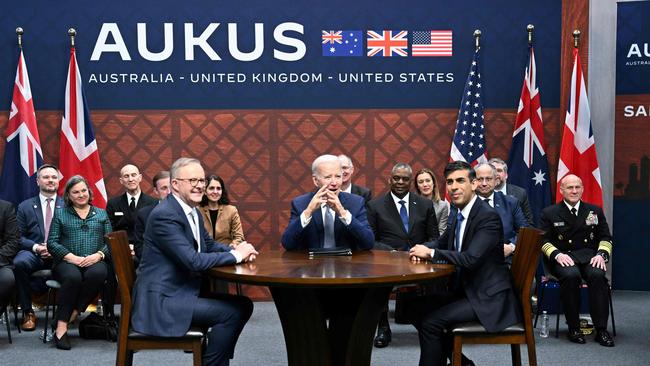
Have Australian universities ever played such a critical role in national defence as they are likely to have in the next 20 years as they meet the challenge to build up the skills in nuclear science and engineering that are needed for the submarine program? And if the answer is that universities are now in an unprecedented situation, then the next question is: do they want to be there?
First question first. I think the answer is that Australia’s universities have never been called upon, on this scale, to work for a specific defence and national security objective.
During our greatest national security emergency, when threatened by Japan during World War II, our universities did not have cutting-edge research capacity in science and technology. The war drove huge technical advances in areas such as jet and rocket propulsion, radar, sonar and nuclear energy, but none of the work was done here.
In the post-war period universities were still not critical to defence programs. Yes, we gained the capacity to build navy ships and submarines in Australia, and we worked on defence science and technology applications with university-trained people. But there were no large university efforts focused on national defence.
The nuclear submarine program has changed that. Australia is now embarking on an enormous program to build, operate and maintain nuclear-powered submarines and a clear goal is sovereign capability.
That means we want Australians to have all the required skills, but it’s an area in which local skills are very scarce because Australia has never had a nuclear power industry, let alone naval nuclear reactors.
The only viable solution to the sovereignty issue is to train the necessary skills in Australian universities as quickly as possible at the scale that is required.
It’s not only about submarines. Other parts of the AUKUS deal in which our top universities will be closely involved include advanced research cyber security, artificial intelligence and quantum technologies
Universities have welcomed the opportunity this has thrown at them. There’s no question that, with adequate resources and through collaboration with US and British allies, they have the capacity to do it.
Certainly it’s a change from having their loyalty perpetually under question, being accused, on thin evidence, of training Australia’s potential enemies.
But is this a position that universities are comfortable in? Is it compatible with academic freedom? No doubt some university critics who defend academics’ right to exercise their freedom and buck the status quo (Peter Ridd case anyone?) will be in favour of universities putting all their weight behind AUKUS regardless of what some individual academics might think.
But it’s also reasonable to point out there’s not a great distance between universities deciding to embrace AUKUS and them adopting other goals that government and industry put forward such as advanced manufacturing, climate challenges, social equity, sustainable energy and research commercialisation. All involve national targets that individual academics are free to disagree with, but university leaders have put their institutional weight behind them.
The same applies to AUKUS. Not all academics will agree with it and they are free to disagree.
But it is also a critical national priority that universities are right to give their full support to. Their backing is critical.




There are a couple of questions that need to be asked about AUKUS.